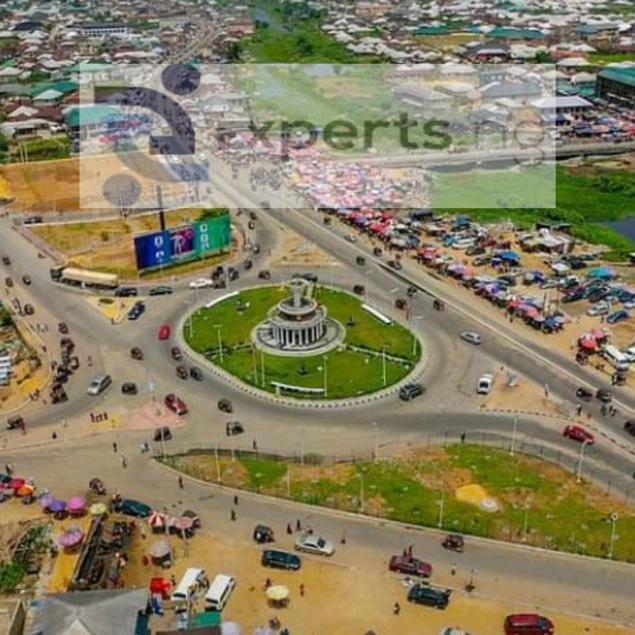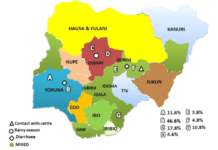You’ve probably heard a few stories about Nigeria and may likely have encountered a few Nigerians too. Well, there’s so many of us!
I wonder how anyone can tell the difference.
One mistake foreigners make is assuming Nigeria is like America, where everyone speaks English, and you can tell people apart by their accent.
Well, a few Nigerians have a distinct accent, but that’s a story for another post.
Some foreigners go as far as assuming Nigeria is the capital of Africa. Oh heavens no.
If you’ve ever made such a mistake, I’m here to guide you: no shame here, just a learning curve.
Now for a reintroduction:
It’s funny how we live in an age of information yet know so little about the world we live in and the people that inhabit it.
Like Chimamanda rightly captions it, we are faced with “the dangers of a single story”.
The extent of what we know is limited to the information we can access or perceive.
Now and then, a cheap comedy hints at a foreigner being swindled by a Nigerian. At the unset, such crimes weren’t treated from a cultural standpoint, whereas, Militancy and Banditry didn’t get the same ovation. I digress.
Sips water.
Where was I?
Yes, interesting facts about Nigeria.
Contents
1. Lagos Is Not the Capital of Nigeria
This misconception is stern from the fact that Lagos is a major business hub and is often the first point of contact for foreigners. That’s like me assuming Los Angeles is the capital of the United States because the LAX is popular.
The capital city is Abuja.
You can’t say you’ve fully experienced Nigeria because you spent a few nights in Lagos, just like I can’t say I know America from a visit to Las Vegas.
2. Cultural Regions Differ From Geopolitical Regions
Some Nigerians can’t tell the difference, and it’s appalling. I speak of the lovely Yoruba people that largely inhabit the southwestern region of Nigeria.
Nigeria is divided into six geopolitical zones, and it hardly does justice to the 525 other languages in the country.
You read that correctly—five hundred twenty-five distinct languages far removed from one another in terms of vocabulary. Even I don’t know them all.
Each cultural region has a unique experience that differs from the other. Our marriage customs differ from one another, as do our burial customs. There are also unique delicacies to each region; however, relationship and communication have resulted in a blend of culture. Very recently, there’s been a wave of some form of cultural export in our fashion. I speak of the modern tie-dye dresses and the incorporation of African print in casual outfits or even the export of men Agbada courtesy: Yoruba weddings.
If you found this interesting, then you might want to read this: 7 Historical Facts About Nigeria
3. IELTS Seem Unfair
I remember standing with a couple of friends at a bus station in France, and a lady walked up to us and enquired about the language we were speaking.
It was funny because we were all speaking English. She was amazed at our accent and the speed with which we speak. Also funny because I feel we talk slowly when compared to other speakers.
In honesty, many young Nigerians are unable to communicate in what the outside world would call our mother tongue. English became their first language, yet they have to take the IELTS because, as Nigerians, they still don’t qualify as native speakers.
People pay a lot to have their kids in school with foreign teachers to learn the British version of English.
Even graduates of English and Literary Studies in Universities across the country are subjected to the test because they don’t have that “foreign” accent or are not considered knowledgeable in English. I find this very disturbing. What then is the point of a Bachelor or Master degree in English?
4. Pidgin English
From Football stars to Hollywood celebrities, everyone wants a piece of the Nigerian pidgin. I can’t even explain it. It carries a certain appeal.
The pidgin is quite dominant on any street in Nigeria, irrespective of cultural region. The North seem to be the only place where pidgin is hardly spoken. They may have a heavy dose of accent, but the accent rather aids their pronunciation, making it more British than any other region.
5. The Nigerian Spirit
One thing no one can contest is that Nigerians are resilient. I admire the drive I see at home and abroad.
When given a platform, they stand out.
Maybe it’s the common desire to beat the stereotype, or may be it’s more complex – perhaps too complicated to describe, which is why I call it the Nigerian spirit.
It’s the positive energy we bring in every social gathering, online or offline. It’s that force of attraction that makes the rest of the world curious about us despite everything bad that has been published in the media.
So when next that stand-up comedian throws a cheap joke about Nigeria, its failed government and the resulting security concerns, the reference to NEPA and a host of other things, you’ll also notice how much such stereotype affects the larger audience.
Nigerians and Nigeria
It’s a love-hate relationship.
You may wonder why Nigerians thrive individually outside Nigeria. Apart from the fact that
Many people love being tagged Nigerians but wish they don’t have to deal with the other tribes. So the collective centre suffers from corruption and unaccountability. On the other hand, no one wants another civil war and wish we could separate peacefully. This mindset toward national unity for a long time acted as an umbrella for corruption.
When next you meet a Nigerian, try asking them what state they’re from. Never assume everywhere outside Lagos is a suburb. It’s not.
By the way, I found the featured Photo on a Friends WhatsApp Status. I’ll be happy to credit the original photographer.



























I’m not tgat much of a online reader to be hones butt yoir sitres rally nice, keep itt up!
I’ll go abead and bookmark your wevsite too ccome back later on. Cheers